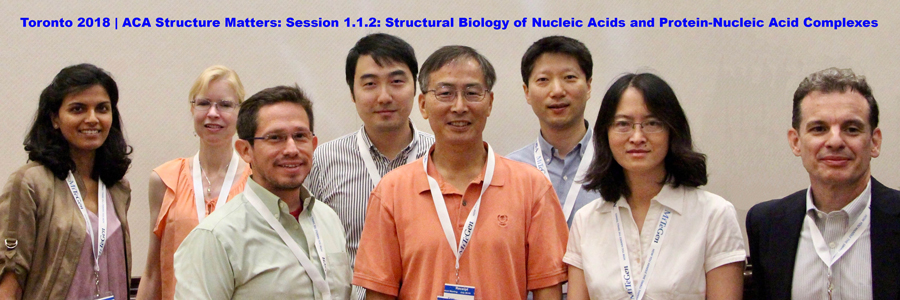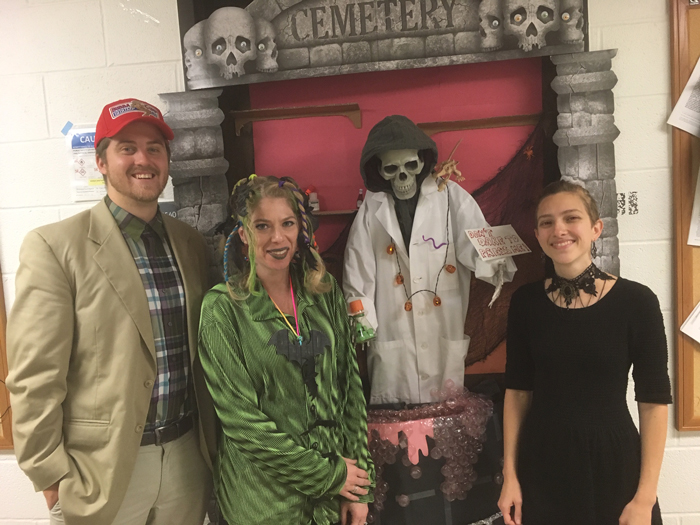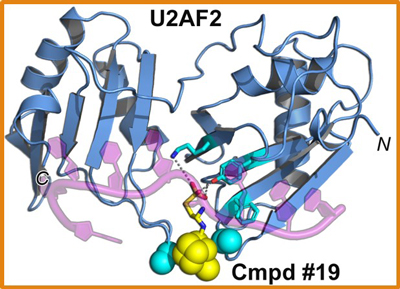News
Kielkopf Presents Research at Nucleic Acids Session at American Crystallographic Association Annual Meeting in Toronto
Friday, November 9, 2018

Highlights of Session 1.1.2 on Nucleic Acid were reported in ACA RefleXions Fall 2018 and provided many new insights into the form and function of nucleic acids and was co-organized by Dr. Joseph Wedekind and Dr. Rui Zhao. Dr. Wen Zhang of Harvard University presented mechanistic studies of non-enzymatic RNA polymerization using custom phosphoramidites with imidazole leaving groups that were caught in the act of catalysis by crystallographic snapshots. This work has implications for catalysis in a pre-biotic RNA world. Sun Cheol Park from Kangwon National University, Korea described DNA recognition by the PadR repressor. Binding of phenolic acid blocks DNA binding to relieve PadR repression, activating downstream detoxification genes. Dr. Yun-Xing Wang from NIH/NCI described use of an X-ray free electron laser to capture conformational changes of the adenine riboswitch during effector binding, providing insights into RNA-mediated translational regulation.
Prof. Clara Kielkopf from the University of Rochester described progress to decode the basis of 3´-splice site recognition of pre-mRNA by U2AF proteins, including polypyrimidine tract recognition and binding to degenerate splice-sites. The work has implications for correction of splicing defects found in human diseases. Dr. Eric Montemayor from the University of Wisconsin described later steps of pre-mRNA splicing, including a model for U6 snRNA remodeling by contacts to the Lsm2-8 ring protein and the Prp24 chaperone. Dr. Soumya Remesh from the Lawrence Berkeley National Lab used small angle scattering and soft X-ray tomography to reveal how small molecules interact with the abundant HU protein to alter DNA supercoiling. The work has implications for controlling bacterial gene expression. The session was anchored by Dr. Ailong Ke of Cornell University who presented structural snapshots that contribute a novel mechanistic framework to describe how bacterial type II-A CRISPR systems create new molecular memories of short, foreign 'spacer' DNAs that invade bacterial cells.
Kielkopf Lab Wins Annual Halloween Door Contest
Thursday, November 1, 2018
The department would like to thank all that participated in the BCBP Halloween Door Contest this year!
This year the winner is…
The Kielkopf Lab!!
Tied for second place are the Ermolenko Lab and the Grossfield Lab! Congratulations to everyone – the doors looked awesome!

Clara L. Kielkopf, Ph.D. Receives Drug Development Grant From UR Ventures For Research To Cure Myelodysplastic Syndromes
Thursday, October 18, 2018

Myelodysplastic Syndromes (MDS) are a group of diverse bone marrow disorders, in which the bone marrow does not produce enough healthy blood cells. MDS is often referred to as a “bone marrow failure disorder.”
Congratulations, Clara and her lab!